Directory
- Share
Shaffin Siddiqui
- Alumni
- United States
- 2022 MPhil History and Philosophy of Science and Medicine
- Hughes Hall
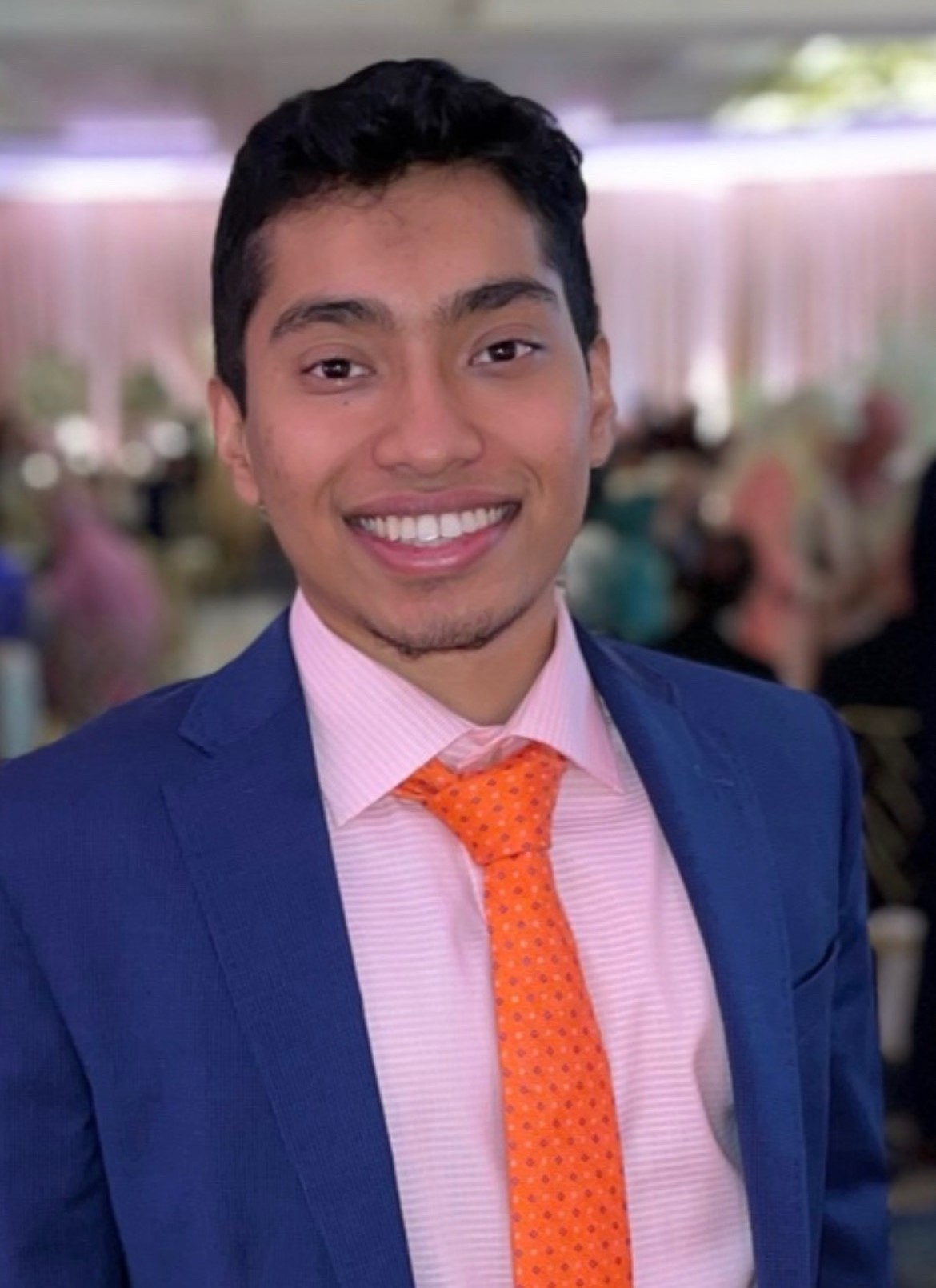
Shaffin Siddiqui
- Alumni
- United States
- 2022 MPhil History and Philosophy of Science and Medicine
- Hughes Hall
Having been raised a Muslim, I have always carried in my heart a fascination with the vastness of the Islamic scholarly tradition and the richness of the lived experience of modern Muslims. After graduating from Highland Park High School in Dallas, Texas, I pursued an A.B. in History at Princeton University, where my interests in the history of Islam and the practice of medicine converged in research inquiring into the history of medicine in the Muslim world. This culminated in my graduating thesis which looked at paradigms of health in the late Nation of Islam. Through my MPhil in the History and Philosophy of Science and Medicine at Cambridge, I hope to focus on how a key socio-intellectual class in diasporic Muslim communities, the ulama (traditionally educated Islamic scholars), have engaged modern biomedicine and promoted varied paradigms and practices of health within Western Muslim populations. These important yet neglected histories will contribute to the project of building critical intellectual bridges between physicians/public-health experts and Muslim leaders like the ulama, with the goal of said enterprise laying not in producing a unilateral relationship between either of these domains but a symbiotic one. **Shaffin will commence his MPhil study in 2023.
Previous Education
Princeton University History 2022
Anna Sigurdardottir
- Alumni
- Iceland
- 2007 PhD Biochemistry
- Downing College
Anna Sigurdardottir
- Alumni
- Iceland
- 2007 PhD Biochemistry
- Downing College
I want to acquire as much experience as I can in my PhD program, experiences that I can take back home to Iceland with me and enrich the Icelandic research community. In the future I see myself as a researcher. My PhD project is in the field of structural biology and in it I am targeting a protein-protein interaction involved in the first step of metastasis for drug discovery using a fragment-based approach. The first three years have been challenging and rewarding.
Sukrit Silas
- Alumni
- India
- 2011 MPhil Pathology
- Trinity College

Sukrit Silas
- Alumni
- India
- 2011 MPhil Pathology
- Trinity College
Previous Education
Princeton University Molecular Biology, Applied and Computational Mathematics 2011
University of Oxford Biochemistry 2010
Colleen Silky Limegrover
- Alumni
- United States
- 2018 PhD Clinical Neurosciences
- Darwin College
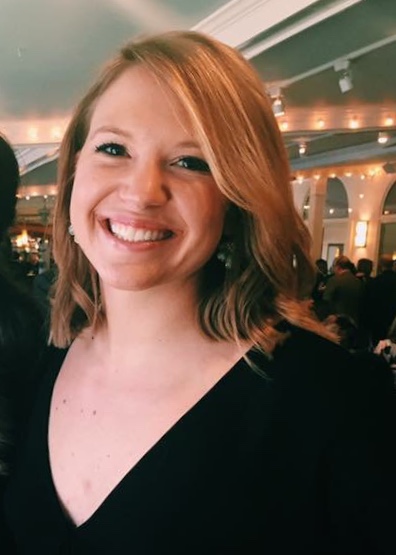
Colleen Silky Limegrover
- Alumni
- United States
- 2018 PhD Clinical Neurosciences
- Darwin College
Neuroscience has been considered one of the final frontiers of science; a labyrinth of cellular connections that we still barely understand. So much of what makes the brain amazing can also lead to devastating disease. The drive to discover solutions to unanswered questions has been my motivation as a research scientist. I have been provided the unique opportunity to develop my own experiments and lead projects which contributed to the breakthrough of a novel drug into clinical trials for Alzheimer’s disease. Seeing the impact innovative research has on patients’ lives has solidified my desire to pursue a career focused on scientific advancements in neurodegeneration. For my PhD in Clinical Neuroscience, I will study new methods identifying cellular irregularities in ALS with the use of patient derived cell lines. ALS was thought to be strictly a motor neuron disease, but recent advancements have shown that the support cells, astrocytes, could cause aspects of disease pathology. I hope that studying three dimensional cell organoids will shine light on new therapeutic pathways for patients in need and bridge the gap between conventional two dimensional cell cultures and clinical trials. I am honored to be joining the Gates Cambridge community, surrounded by diverse scholars working to make a difference around the world.
Previous Education
Allegheny College
Jay Silver
- Alumni
- United States
- 2002 MPhil Comp Speech, Text & Internet Technology
- Churchill College

Jay Silver
- Alumni
- United States
- 2002 MPhil Comp Speech, Text & Internet Technology
- Churchill College
http://jaysilver.net
Rachel Silverman
- Alumni
- United States
- 2013 MPhil Public Health
- Clare College
Rachel Silverman
- Alumni
- United States
- 2013 MPhil Public Health
- Clare College
After graduating from Stanford University in 2009 with a B.A. in international relations and economics, I spent the past four years working in international development research and practice, most recently with the global health policy team at the Center for Global Development. This year, I am excited to be pursuing an MPhil in Public Health with support from the Gates Cambridge Trust. Driven by the belief that we have an ethical obligation to save as many lives as possible with the resources at our disposal, my interests lie at the intersection of global health and economics, particularly with regard to efficient and equitable resource allocation (priority-setting) and incentive structures to maximize “value for money” in health policy. It is my hope that my studies at Cambridge will enable me to be a stronger advocate for evidence-based public health decision-making.
Anna Silverstein
- Alumni
- United States
- 2004 MPhil Classics
- King's College

Anna Silverstein
- Alumni
- United States
- 2004 MPhil Classics
- King's College
Joshua Silverstein
- Alumni
- United States
- 2010 MPhil International Relations
- St John's College
Joshua Silverstein
- Alumni
- United States
- 2010 MPhil International Relations
- St John's College
Jing Xi (Rachel) Sim
- Scholar
- Singapore
- 2023 PhD Architecture
- Queens' College
Jing Xi (Rachel) Sim
- Scholar
- Singapore
- 2023 PhD Architecture
- Queens' College
Across the world, alternative political communities fight to represent the masses, ranging from that of alternative political parties, NGOs, to protesters that gather in the city. Through studying, conducting research, and teaching at the National University of Singapore, I have explored this at various urban scales, with the goal of illuminating political inequalities embedded in the city. I further pursued this goal as an MPhil student at the University of Cambridge, which deepened my understanding of these issues beyond Singaporean shores. Concurrently, I have also been involved in events designed to bring related theories into the everyday context. My proposed PhD study aims to explore the urban spatialities of diasporic communities in the UK, examining the social spaces required for political expression and relevant other issues such as social integration. I hope for my research to be a platform documenting the complexity of their stories, in so broadening traditional conceptions of migratory urbanisms. I am immensely grateful for the opportunity to continue my education at Cambridge as a Gates Scholar, and will continue developing my capacity as a leader and researcher who can meaningfully impact the community around me.
Previous Education
University of Cambridge Architecture and Urban Studies 2022
National University of Singapore Architecture 2021
Khe Sim
- Alumni
- Malaysia
- 2001 MPhil Comp Speech, Text & Internet Technology
- Churchill College

Khe Sim
- Alumni
- Malaysia
- 2001 MPhil Comp Speech, Text & Internet Technology
- Churchill College
Megan Sim
- Alumni
- Singapore
- 2009 MPhil Social and Developmental Psychology
2010 PhD Social and Developmental Psychology - Sidney Sussex College
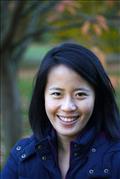
Megan Sim
- Alumni
- Singapore
- 2009 MPhil Social and Developmental Psychology
2010 PhD Social and Developmental Psychology - Sidney Sussex College
My academic research and career has been driven by my passion for using evidence to improve the lives of others – particularly children and people who are disadvantaged and vulnerable. My PhD research examined what actually happens when juveniles are interviewed by police officers; in particular, I examined the interrogation techniques used by police officers, and the effectiveness of these techniques at eliciting different responses from the young suspects.
After completing my doctorate in 2014 I designed and led evaluations, including of UK and European public policy initiatives at RAND Europe in Cambridge, UK, and of international development projects at the Centre for Evaluation and Development in Mannheim, Germany.
Malina Simard-Halm
- Alumni
- United States
- 2018 MPhil Criminology
- Murray Edwards College (New Hall)
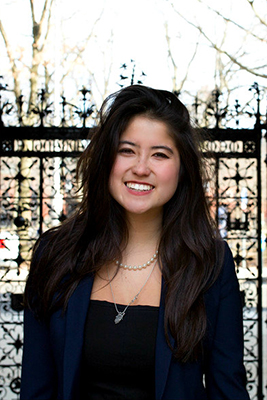
Malina Simard-Halm
- Alumni
- United States
- 2018 MPhil Criminology
- Murray Edwards College (New Hall)
During my time at Yale, I have concentrated my studies on the ethics and politics of the criminal justice system with a particular emphasis on sentencing and alternatives to incarceration. While at Cambridge, I seek to further examine the limits of individual culpability in criminal sentencing, especially as they relate to racial and economic marginalization. By integrating sentencing theory with the study of crime's causes, I aspire to show that precluding identity markers of adversity from sentencing guidelines can often lead to more unjust outcomes. Outside of classes, I have spent time working with the Federal Public Defenders, the Legal Action Center (an advocacy organization for individuals with criminal records and substance use disorders), the New Haven Law Enforcement Assisted Diversion (LEAD) program, and Yale Students for Private Prison Divestment. As one of the first children born to two gay dads through assisted reproduction, I am also proud to have advocated for LGBTQ families on the news and in the courtroom. I am lucky to serve as a member of the Board of Directors of the National Non-Profit COLAGE (Children of Lesbians and Gay Everywhere). I could not be more honoured to be joining the Gates Cambridge community to work and learn with others committed to thoughtful and effective social change.
Previous Education
Oxford University
Yale University
Aline Simon
- Alumni
- Germany
- 2011 PhD Biochemistry
- St Catharine's College
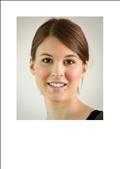
Aline Simon
- Alumni
- Germany
- 2011 PhD Biochemistry
- St Catharine's College
I have recently graduated from Imperial College London with an M.Res. in Structural Molecular Biology after obtaining a B.Sc in Biochemistry from the Technical University of Munich in 2009. My decision to focus on the structural and biophysical aspects of biochemistry was influenced by two research projects in the field of DNA repair and RNA crystallography at the Immune Disease Institute in Boston, MA and at Yale University, respectively, in 2009 and 2010. At Cambridge, I am pursuing a PhD in Biochemistry, where I will have the opportunity to combine my previous research interests by structurally characterizing a protein factor that is part of the replisome progression complex (RPC) and thus is involved in DNA replication. With the dysregulation or dysfunction of RPC components being linked to genomic instability, I hope that my work in Cambridge will help to contribute to a better understanding of the mutual interplay of different RPC factors and to clarify their respective role.
Grant Simpson
- Alumni
- United States
- 2017 PhD Chemistry
- Christ's College
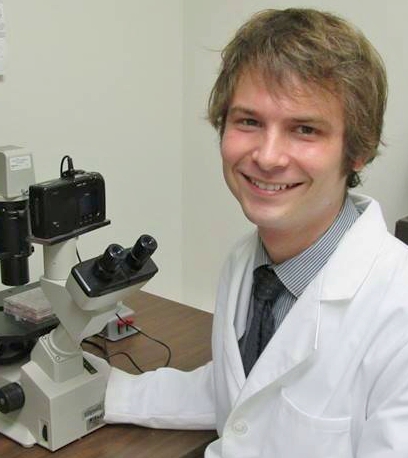
Grant Simpson
- Alumni
- United States
- 2017 PhD Chemistry
- Christ's College
I graduated from the University of Florida with highest honours and the equivalent of class valedictorian. There, I completed my B.S. degree double majoring in Chemistry and Cognitive/Behavioral Neuroscience with a minor in Philosophy. My previous research involvements have varied widely, ranging from healthcare disparities to behavioral neuroscience to stem cell biology to synthetic chemistry and pharmacology. I ultimately gravitated towards chemistry because I saw the unique power chemists possess to develop novel therapies and therefore profoundly improve an indefinite number of lives. Under the auspices of the Gates Cambridge Scholarship, I will be reading for an MPhil in Chemistry at Christ’s College, working in the Gonçalo Bernardes research group with the aim of developing new, more selective cancer therapeutics. In this project, we have chosen a bold and innovative approach of using quadruple helical DNA structures as platforms to hold both cancer-targeting antibodies and cancer-cell-killing drugs. Further, I will develop synthetic methods to chemically link these different classes of biomolecules (i.e., DNA and protein). With these novel and beautiful structures, we hope to circumvent the poor efficacy and terrible side effects of current, standard-of-care chemotherapy and increase the therapeutic utility of first generation antibody-drug conjugates, with the ultimate goal improving human life and patient outcomes.
Previous Education
University of Florida
Links
Ankit Singh
- Scholar
- India
- 2024 PhD History
- Trinity College
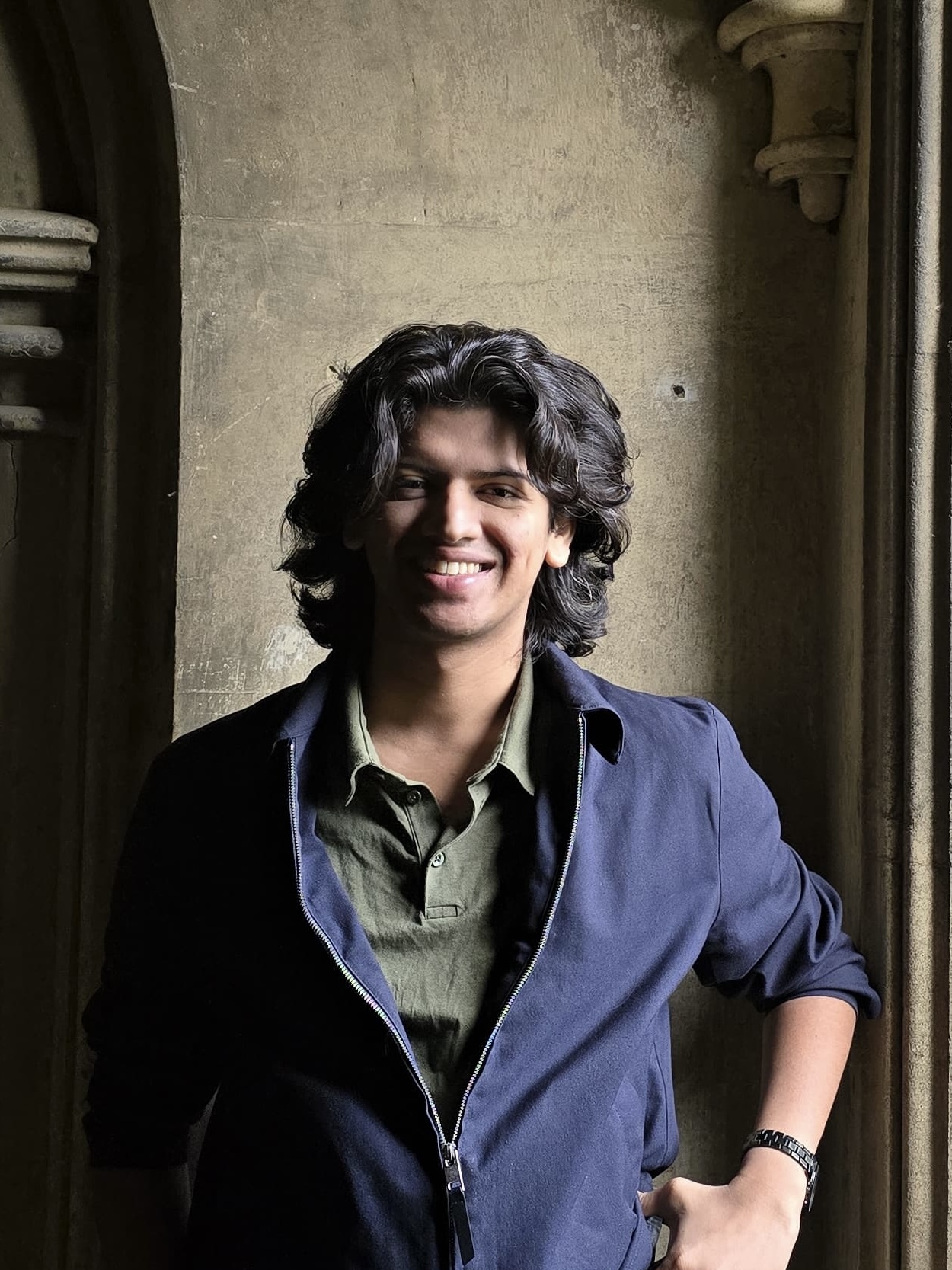
Ankit Singh
- Scholar
- India
- 2024 PhD History
- Trinity College
I study labour legislation as a strategic apparatus of capitalist hegemony, stabilising the dominance of capital by offering limited protections while simultaneously reproducing elements of earlier control regimes. It reflects a form of instrumentalism exercised by an alliance between the colonial state, and later the postcolonial nation-state, and capital. At the same time, it deflects demands for structural change and institutionalises the subordination of labour to capital. For my PhD, I examine the history of the Workmen's Compensation Act and related laws on disablement benefits and employers’ liability, assessing their developments with shifts in the dominant modes of production in modern India. For my research, I present a micro-history of the iron and steel industry during the colonial period to examine the colonial mode of production and the introduction of international labour legislation. The social relations of production are explored through archival research on industries such as British Iron & Steel Corporation (BISCO) and TATA in India, both established in the early twentieth century. The dominant mode of production and history of compensation are traced in this colonial context. Through accounts of unionisation, movement formation and resistance, the hypothesis of hegemony maintained through labour legislation is critically assessed. My study then proceeds to the history of automobile manufacturing in the postcolonial and contemporary periods. Beginning with early industrial developments involving Bajaj and Hind Motors, the research will extend to corporations such as Maruti, Hero and Honda in the neoliberal era. Questions of industrial safety and compensation will be examined through the archival sources. The study will also draw on primary data collected through extensive field engagement, oral histories, and archival accounts of labour in New Delhi, Kolkata and Mumbai. Historical accounts of labour and labour movements will be sourced from trade union archives, labour newsletters (e.g. Gurugram Workers News and Faridabad Mazdoor Samachar), and official Indian government records. Labour legislation, since its inception in both metropoles and colonies, has functioned as a tool of imperial dominance. By standardising the social relations of production, I argue that it reorganises consent without fundamentally altering the relations of exploitation. Through disciplining the workforce and regulating labour turnover in the global North after WWI, labour legislation characterised the “Fordist compromise.” During the war years, as industrial spaces began to change, resistance from the working class was met with a series of employer and state-sanctioned negotiations for reintegrating labour into the circuits of global capital. This process ideologically maintained colonial dominance by gradually facilitating a shift of production in the global South, while simultaneously containing working-class resistance through the remodelling of the social relations of production.
Previous Education
Jawaharlal Nehru University Development and Labour Studies 2022
Christ University, Bangalore Economics (Honours) 2020
Links
Devani Singh
- Alumni
- Canada
- 2011 PhD English
- Emmanuel College
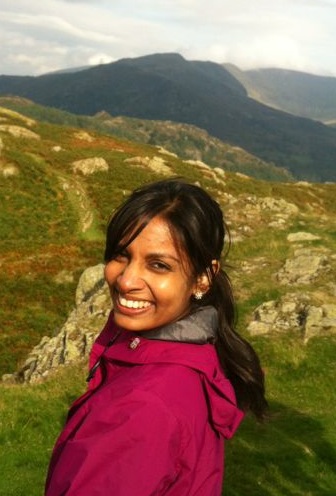
Devani Singh
- Alumni
- Canada
- 2011 PhD English
- Emmanuel College
My research ranges across the late medieval and early modern periods (c. 1350-1700). I am a literary scholar and book historian interested in the relationship between early English books and their readers, a topic investigated in my work on Chaucer's early modern reception and on the emergence of printed epistles to readers in English books.
While at Cambridge I was extensively involved in the Medieval Reading Group at Cambridge and its associated journal, "Marginalia", and served as Chair of the Gates Cambridge Scholars' Council (2013-14).
Sofia Singler
- Alumni
- Finland
- 2016 PhD Architecture
- Pembroke College
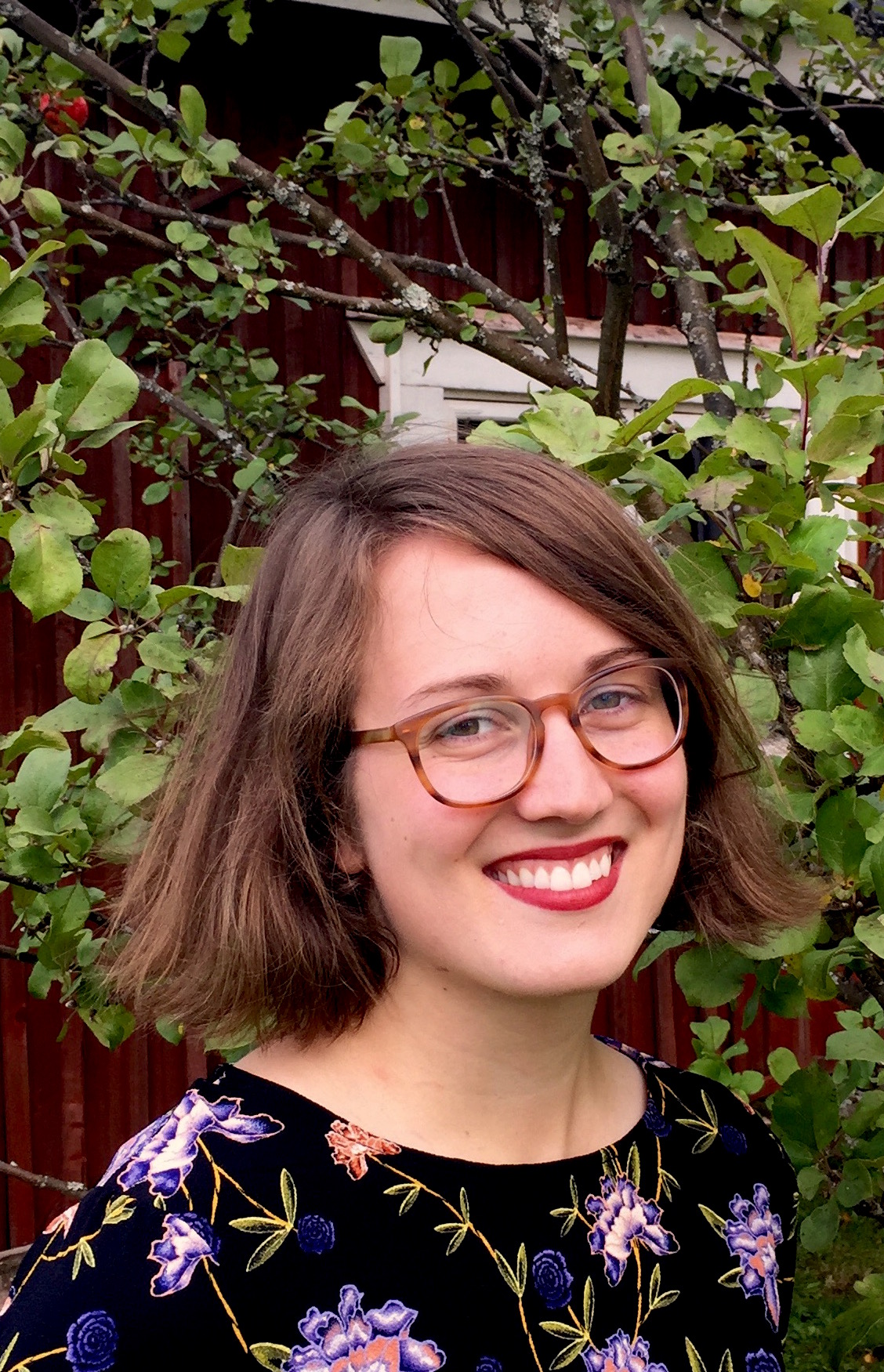
Sofia Singler
- Alumni
- Finland
- 2016 PhD Architecture
- Pembroke College
My research examines how the Finnish modernist Alvar Aalto’s ecclesiastical oeuvre can enrich our understanding of the relationship between religion and modern architecture, and revise misleadingly uncomplicated assumptions concerning their mutual exclusivity.
Previous Education
University of Cambridge
Yale University
Aninda Sinha
- Alumni
- India
- 2001 PhD Theoretical Physics
- Gonville and Caius College
Aninda Sinha
- Alumni
- India
- 2001 PhD Theoretical Physics
- Gonville and Caius College
I am currently faculty in the Centre for High Energy Physics group of Indian Institute of Science, Bangalore, India.








